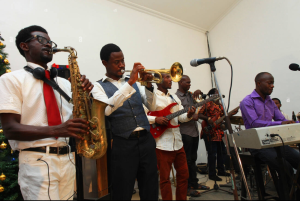
We Christians, particularly Pentecostal and Charismatic believers, offer praise and worship to God. In fact, we are serious about them, so we include them in most of our church services.
However, the question is, do most of us really understand praise and worship? Do we know what they mean to help us celebrate and adore God in songs with dancing appropriately?
I must boldly say that most Christians in Ghana and Africa as a whole do not clearly understand praise and worship to God. This short article, therefore, attempts to answer the questions above.
King David helps us with understanding. While praising and worshipping God in music, David tells us that we may bow down or kneel before Him; we must tremble before Him, seeing His glory, power, authority and greatness.
“Oh come, let us worship and bow down; let us kneel before the LORD, our Maker!” (Psalm 95:6).
“Worship the LORD in the splendor of holiness; tremble before him, all the earth!” (Psalm 96:9).
Now, the word “praise” means to “celebrate”, “lift up one’s hands”, “shout”, “triumph”, “exclaim” and “kneel down.”
And the word “worship” means to “prostrate oneself” “bow down”, “fall down to pay homage to God”.
This means that praise and worship to God demand action. They involve physical demonstration of our body or its parts moving in some directions to express genuine praise and worship to God.
In other words, one cannot be standing static with their hands in the pockets or be seated, fidgeting with a phone or a tablet and say that he is praising and worshipping God.
Every believer, pastor, including the general overseer must lift their hands, clap their hands and dance when we praise God. And we must prostrate ourselves, bow down or fall down to pay homage to God when we worship Him in songs.
For instance, you cannot be singing the Akan worship song: “Yεkoto Wo, na yεsɔre Wo. Nyame Eguamba, wofata ayeyi”, and stand fixed in one position. You must bow as the song suggests.
Even the singers and the instrumentalists, in their own reasonable way, must participate in these acts of praise and worship, by dancing and expressing gratitude to God, while singing and playing the instruments.
No Christian believer is exempted from praise and worship, and there is no room for jokes as we stand before God.
It is hoped that Christians who read this article will repent and start praising and worshipping God with knowledge and understanding for the glory of God.
By James Quansah
 clcgh.org Building The Capacity Of Christian Leaders, Equipping The Saints For The Work Of Ministry, Redirecting Straying Christians To The Sound Knowledge Of Christ
clcgh.org Building The Capacity Of Christian Leaders, Equipping The Saints For The Work Of Ministry, Redirecting Straying Christians To The Sound Knowledge Of Christ



